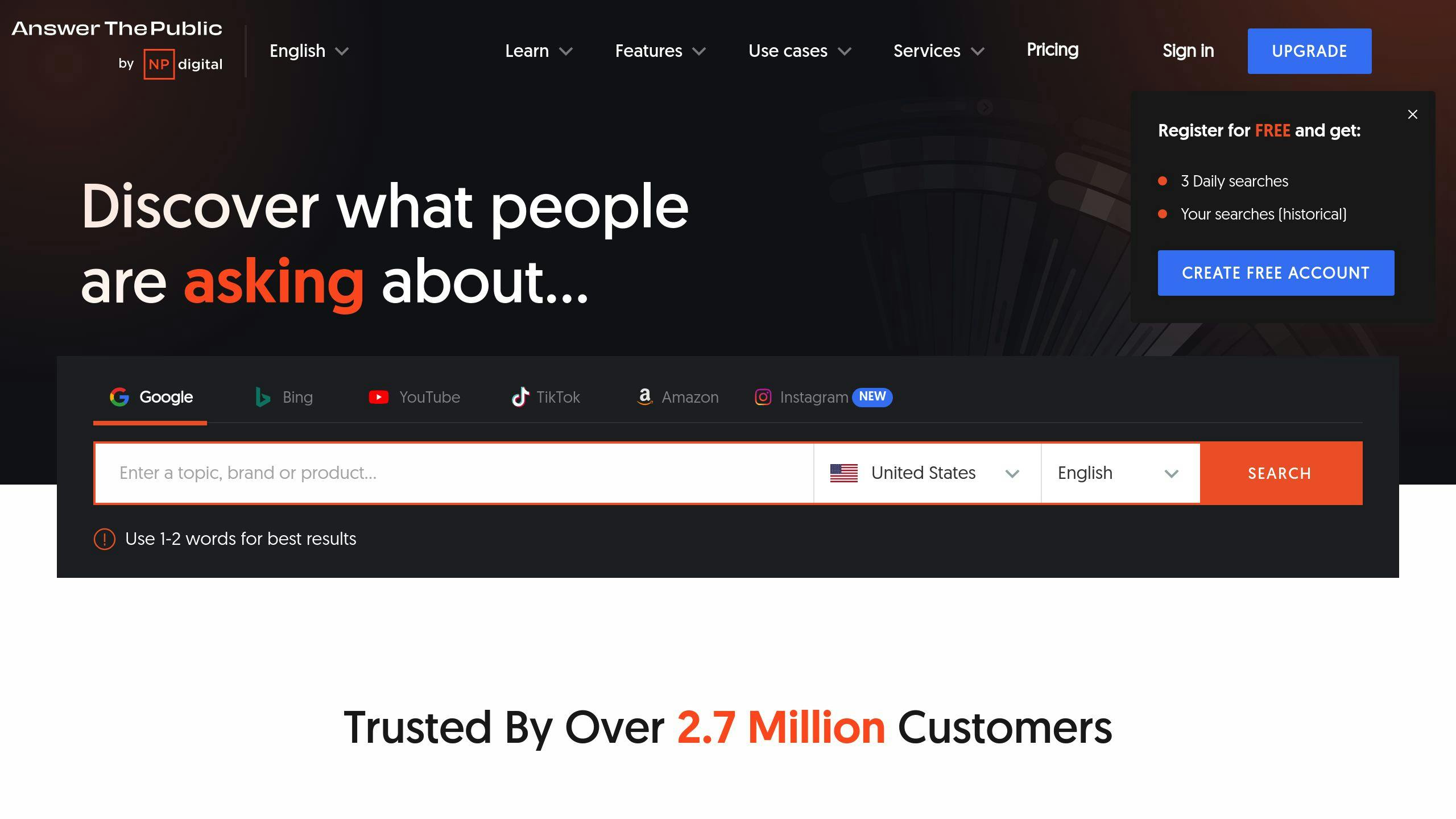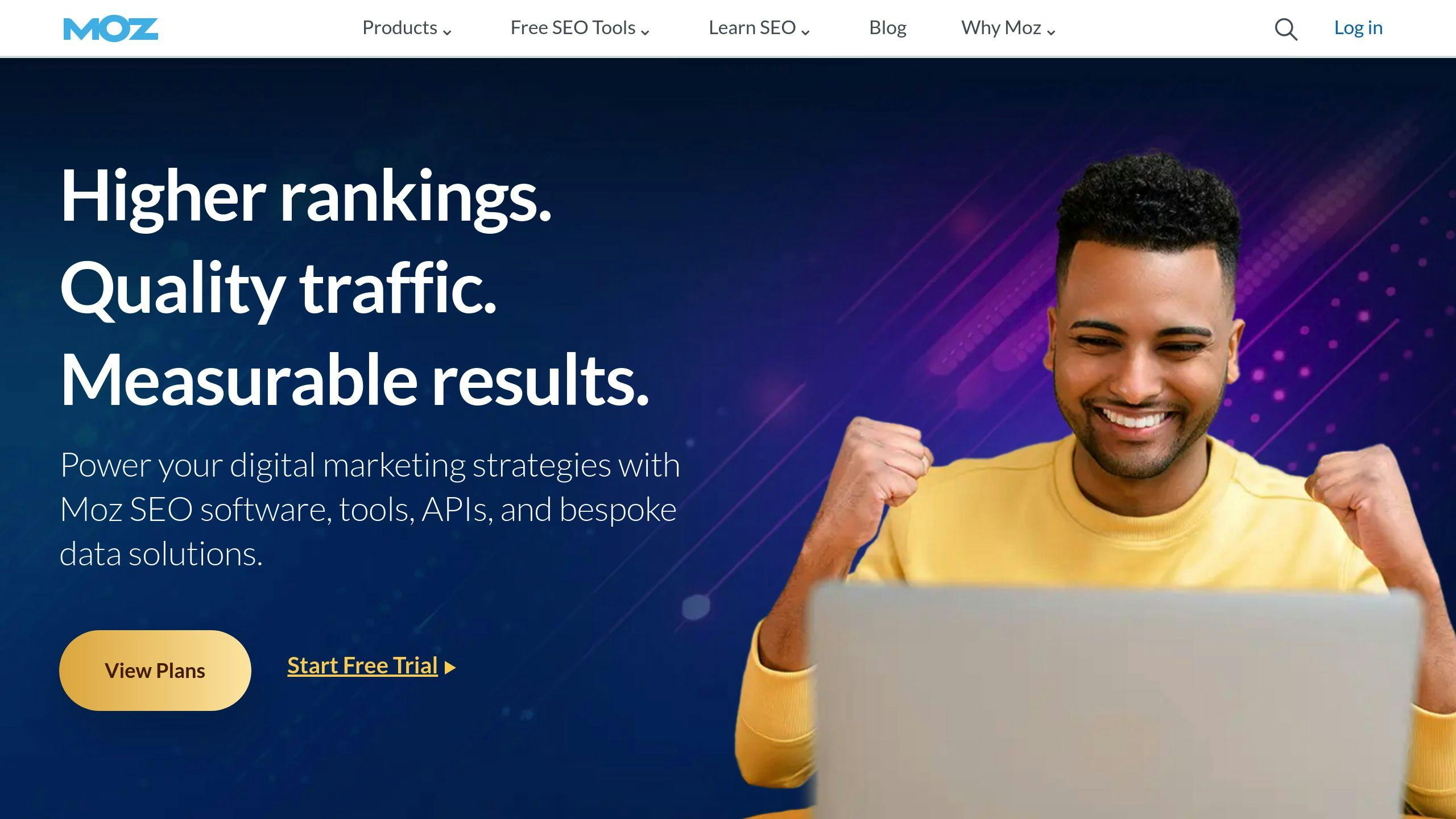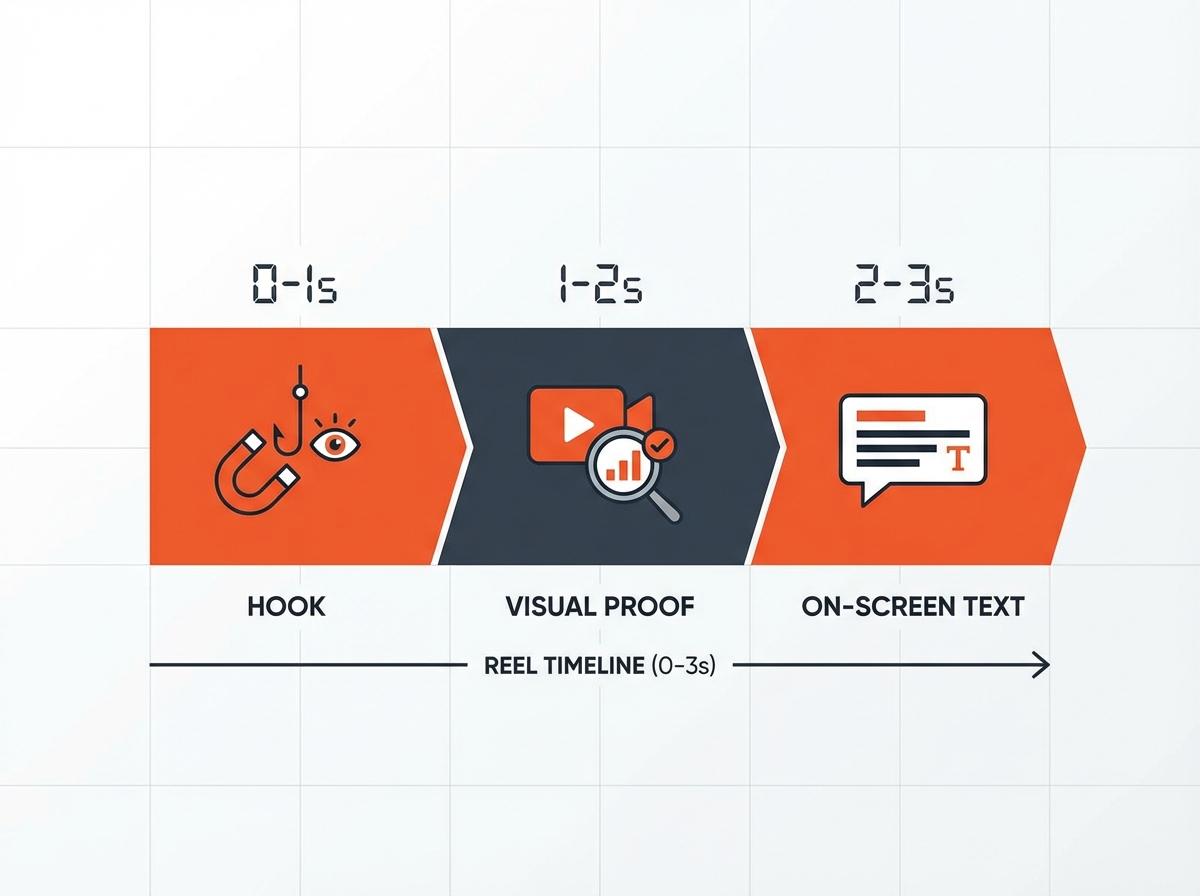Here are 15 free tools every small business can use in 2025 to boost search rankings, drive organic traffic, and optimize their online presence. These tools cover everything from technical audits to keyword research, content creation, and backlink strategies.
Key Tools You’ll Learn About:
- Kwebby: All-in-one SEO toolkit for audits, competitive analysis, and meta tag generation.
- Google Search Console: Monitor search performance, fix indexing issues, and improve user experience.
- Screaming Frog (Free Version): Identify broken links, duplicate content, and technical SEO problems.
- Google Keyword Planner: Discover high-traffic, low-competition keywords.
- Answer The Public: Generate content ideas based on real user questions.
- Ubersuggest: Analyze keywords, competitors, and site performance.
- Yoast SEO: Optimize WordPress content with readability and SEO checks.
- SEOquake: Browser extension for quick SEO audits and competitor analysis.
- Hemingway Editor: Simplify content for better readability and engagement.
- Grammarly: Polish grammar and sentence structure for professional content.
- Ahrefs Webmaster Tools: Track backlinks, perform audits, and monitor SEO performance.
- Moz Link Explorer: Analyze backlinks and domain authority.
- Kwebby’s Backlink Maker: Build backlinks to improve rankings.
Why These Tools Matter:
- 53% of web traffic comes from organic search.
- SEO drives 1000% more traffic than social media.
- These tools help small businesses compete without breaking the bank.
Whether you’re tackling technical issues, crafting better content, or building strong backlinks, this guide has everything you need to get started.
Top 10 Free SEO Tools for Website in 2025
1. Kwebby

Kwebby is a free SEO toolkit tailored for small businesses. Created by Raman Singh, it provides essential SEO tools without the high cost of premium platforms.
At its heart, Kwebby features a website audit tool that evaluates your site’s SEO performance. It breaks down SEO concepts into simple, actionable steps, making it beginner-friendly. The platform also includes a competitive analysis feature, helping you identify areas where your site can improve compared to rivals.
Here’s what Kwebby offers:
- Website analysis with unlimited audits to keep track of your site’s performance over time
- Competitive analysis to uncover gaps and growth opportunities
- Backlink analysis to assess the strength of your link profile
- Meta tag generator to craft optimized metadata
- Specialized tools for tackling specific SEO tasks
Kwebby aims to make SEO manageable for small businesses by translating technical jargon into easy-to-follow guidance. It enables users to enhance their online visibility without needing advanced technical skills.
Here are some SEO Tools you might want to check out as follows;
- AI Article Rewriter Pro
- Plagiarism Checker
- Backlink Maker
- Free Backlink Checker Tool
- SEO Checklist
- WordPress SEO Checklist
Although Kwebby provides a solid all-in-one solution, tools like Google Search Console can offer more detailed insights into certain aspects of your site’s performance.
2. Google Search Console
Google Search Console is a free tool from Google that offers direct insights to help improve your website’s search performance. It’s a go-to platform for understanding how your site is performing in search results and identifying technical issues that might be holding it back.
When combined with tools like Kwebby’s competitive analysis features, it provides a well-rounded view of your site’s strengths and weaknesses. For instance, the Coverage Report helps spot issues like crawl errors or pages not being indexed, while the URL Inspection tool allows you to troubleshoot specific pages and even request quicker indexing.
Here’s a quick look at some of its features and how they can help your business:
| Feature | How It Helps Your Business |
|---|---|
| Search Analytics | Understand which keywords bring in traffic and fine-tune your content strategy |
| Mobile Usability | Check if your site is mobile-friendly and fix any issues |
| Core Web Vitals | Improve page speed and overall user experience |
| Security Issues | Get alerts about potential security risks |
| Sitemaps | Submit and track your sitemap to improve indexing |
The tool also integrates seamlessly with other Google services, creating a strong ecosystem for managing your online presence. For small businesses with limited resources, it helps prioritize SEO tasks that can make the biggest difference in visibility and traffic.
While Google Search Console is excellent for technical SEO, pairing it with tools like Screaming Frog can provide even deeper insights into your site’s performance. Together, these tools can give you a clear path to improving your site’s search rankings.
More Articles on Google Search Console;
- How to remove Expired Domains URL From Google Search Console?
- How to link GA4 with Google Search Console
- How to Add Shipping & Return Policies in Google Search Console?
- Search Console’s Crawl Limit Changed By Google
3. Screaming Frog SEO Spider (free version)

The free version of Screaming Frog SEO Spider is a powerful tool designed for small businesses looking to tackle technical SEO challenges. With a crawl limit of 500 URLs, it’s perfect for smaller websites, offering detailed insights to boost search performance.
This tool scans your site to highlight technical issues that might hurt your rankings:
| Issue Type | What It Checks | Why It Matters |
|---|---|---|
| Content Issues | Duplicate content, thin content, missing meta descriptions | Helps avoid penalties and improves CTR |
| Technical Problems | Broken links, redirect chains, missing alt text | Improves accessibility and usability |
| Structure Analysis | Site architecture, internal linking, URL issues | Makes your site easier to understand for search engines |
| Meta Data | Title tags, meta descriptions, header tags | Enhances how your site appears in search results |
While the interface might seem overwhelming at first, its core features are simple to use:
- Site Structure Analysis: Pinpoint pages that aren’t linked elsewhere on your site.
- Meta Tag Audit: Spot missing or duplicate title tags and descriptions.
- Broken Link Check: Identify and fix 404 errors and other broken links.
- Image Analysis: Optimize images and add any missing alt text.
The free version focuses on essential technical SEO tasks, such as:
- Analyzing individual pages for issues
- Reviewing internal link structures
- Fine-tuning meta tags
- Optimizing images and other resources
By running regular site crawls, you can quickly detect and resolve problems, keeping your site in good technical shape without overloading your budget. For small businesses, this tool helps prioritize fixes for the pages that matter most.
While Screaming Frog is excellent for diagnosing technical issues, pairing it with tools like Google Keyword Planner can help you refine your content strategy and improve overall search visibility.
4. Google Keyword Planner
Google Keyword Planner gives small businesses access to Google’s massive search data, making it a go-to tool for understanding search volume and discovering keyword ideas. It works well as part of a broader SEO strategy, offering essential keyword insights that complement other tools.
Here are some of its key features:
| Feature | What It Does | Why It Matters |
|---|---|---|
| Keyword Discovery | Suggests related terms and variations | Opens up new content opportunities |
| Search Volume Data | Shows monthly search trends | Helps you focus on high-priority keywords |
| Competition Analysis | Highlights keyword difficulty | Pinpoints easier opportunities to rank |
| Seasonal Trends | Displays fluctuations in search volume | Helps you time your content effectively |
To start using Google Keyword Planner, set up a Google Ads account. Use the tool to explore new keywords or analyze existing ones for performance. Focus on long-tail keywords – they’re often easier to rank for and tend to drive better conversions.
When combined with other SEO tools, Google Keyword Planner becomes even more powerful. For example, you can:
- Compare data with Google Search Console to confirm your organic search performance.
- Export keyword lists to streamline content planning and optimize meta tags.
- Analyze seasonal trends to publish content at the right time.
- Spot content gaps by reviewing competitors’ keyword strategies.
Its integration with other Google services makes it a strong addition to your SEO toolkit. While it shines in keyword research, pairing it with tools like Answer The Public can help you brainstorm content ideas tailored to your audience.
5. Answer The Public

Answer The Public is a handy tool for small businesses looking to create content that connects with their audience. It takes Google’s autocomplete data and turns it into useful insights, helping you better understand what your audience is searching for.
The tool organizes search queries into categories like “what”, “why”, “how”, “when”, and “where.” This makes it easier to craft content that addresses common user questions. Here’s how these categories can be applied:
| Question Type | Content Ideas |
|---|---|
| What/Why/How | Create how-to guides or explanatory articles |
| When/Where | Develop location-based or time-sensitive content |
| Can/Should | Address customer doubts and objections |
| Comparisons | Write comparison pieces or buyer guides |
The free version allows three searches per day, which is plenty for small businesses to gather helpful data. You can even export the results for further analysis. Sarah Evans, a digital strategist, highlights its value:
“We use AnswerThePublic to add insight, validation, and creativity to our digital PR and content strategies.”
To get the most out of this tool:
- Focus on specific, low-competition phrases.
- Look for questions that your competitors haven’t answered.
- Aim for featured snippets by targeting question-based queries.
Answer The Public works as a bridge between keyword research and content creation, helping you craft content that directly answers user search queries. For more in-depth keyword analysis, tools like Ubersuggest can complement the insights you gain.
6. Ubersuggest (free features)

Ubersuggest, created by Neil Patel, is a free SEO tool that offers keyword research, site audits, and competitor analysis. With its simple interface and connection to Google Analytics, it’s a great choice for small businesses aiming to boost their search rankings without overspending.
The free version allows for three daily keyword searches, audits of up to 150 pages, and competitor analysis for three domains per day. It combines keyword metrics like search volume and difficulty with technical site assessments and competitor insights. This makes it particularly useful for spotting low-competition keywords with good traffic potential, complementing tools like Google Keyword Planner.
| Feature | Free Plan Limit | Business Use |
|---|---|---|
| Keyword Searches | 3 searches/day | Discover relevant keywords |
| Site Audit Pages | 150 pages/audit | Pinpoint technical issues |
| Competitor Analysis | 3 domains/day | Analyze market leaders |
The site audit feature reviews your website’s technical performance, covering areas like page speed and mobile compatibility. Meanwhile, the competitor analysis tool uncovers successful keywords and content strategies in your niche, helping you find opportunities for new content.
By integrating with Google Analytics and Search Console, Ubersuggest provides a detailed view of your SEO performance. Although the free version has daily limits, it offers enough features for small businesses to improve their search visibility effectively.
While Ubersuggest focuses on keyword research and technical insights, tools like Yoast SEO can further refine your content directly within your CMS.
7. Yoast SEO (WordPress plugin)

Yoast SEO is a popular WordPress plugin that makes SEO easier for small businesses. The free version provides tools to boost your website’s search visibility without any additional costs.
This plugin uses a traffic light system (red, orange, green) to evaluate your content’s SEO and readability. It also offers internal linking suggestions and creates XML sitemaps automatically, helping search engines index your site more effectively. These features ensure your content aligns with both search engine guidelines and user needs.
| Feature | Function | Business Benefit |
|---|---|---|
| Content Analysis | Checks keyword usage and placement | Helps you craft SEO-friendly content |
| Readability Check | Reviews sentence structure and clarity | Enhances user engagement |
| XML Sitemap | Automatically creates sitemaps | Improves search engine indexing |
| Meta Tag Control | Manages titles and descriptions | Boosts click-through rates |
One standout feature is the automatic XML sitemap creation, which ensures search engines can crawl your site efficiently. Additionally, the internal linking tool offers real-time suggestions while you write, making it easier to build a solid site structure.
Yoast SEO also integrates with Google Search Console, allowing you to track and improve your site’s search performance. This connection bridges content optimization with performance monitoring.
While Yoast SEO focuses on optimizing content within WordPress, tools like SEOquake can complement it by providing insights into competitor strategies, giving you a broader view of your SEO efforts.
8. SEOquake (browser extension)

SEOquake is a free browser extension designed to simplify SEO analysis for small businesses. Available for Chrome, Firefox, and Opera, it offers instant access to key SEO metrics as you browse.
Here’s what it brings to the table:
| Feature | Function | How It Helps Your Business |
|---|---|---|
| Technical Audit | Scans for SEO issues and suggests fixes | Helps improve overall site performance |
| Keyword Analysis | Tracks keyword density for better optimization | Makes your content more relevant to search queries |
| Link Assessment | Reviews internal and external links | Improves site structure and navigation |
| Meta Tag Review | Analyzes titles and descriptions | Boosts your site’s visibility and click-through rates |
SEOquake also stands out with its real-time competitor analysis and keyword density tools, giving you actionable insights to fine-tune your content and spot opportunities. The interface is user-friendly, so you don’t need to be an expert to get started.
It can diagnose issues like broken links, missing meta tags, and other factors that may hurt your rankings. While it has its limitations, its ease of use and accessibility make it a handy tool for small businesses. Pairing it with other free SEO tools can create a well-rounded strategy for improving your website.
For quick insights while browsing competitor sites, SEOquake is a great companion to deeper tools like Screaming Frog or Google Search Console. To get the most out of it, regularly review your top-performing pages and compare them to competitors.
Although SEOquake handles real-time analysis well, tools like Kwebby’s Meta Tag Generator can complement it by refining your on-page SEO even further.
9. Kwebby’s Meta Tag Generator
Kwebby’s Meta Tag Generator is a free tool designed to make creating meta tags easier for small business websites. Its simple interface ensures even non-technical users can generate optimized meta tags without hassle.
| Feature | Benefit | Business Impact |
|---|---|---|
| Custom Templates | Industry-specific formats ready to use | Saves time while following SEO guidelines |
| Real-time Preview | Displays meta tags as they’ll appear in search results | Helps boost click-through rates |
| Character Count | Tracks limits for titles and descriptions | Ensures compliance with search engine rules |
| Keyword Integration | Offers suggestions for keyword placement | Enhances relevance and search rankings |
The tool generates meta tags that align with current SEO standards. Users can input their website title, description, and keywords, and the generator produces optimized tags aimed at improving search visibility.
It also provides real-time guidance, such as flagging descriptions that exceed 160 characters or highlighting titles that need adjustments. To get the most out of it, keep these tips in mind:
- Write unique meta descriptions for each page.
- Place key terms naturally at the beginning of titles and descriptions.
- Include clear calls-to-action in your descriptions.
- Make sure your meta tags accurately represent the page content.
For small businesses, Kwebby’s Meta Tag Generator is an easy way to enhance search visibility without requiring advanced SEO knowledge. While tools like SEOquake can identify issues with your meta tags, Kwebby’s generator helps you create replacements that meet SEO standards.
SEO experts note that optimized meta tags can increase click-through rates by 10-20% [1][2]. This makes Kwebby’s tool an excellent choice for businesses looking to improve their organic search performance without spending on costly SEO software.
As your content changes, regularly updating your meta tags with this generator ensures your site stays competitive in search rankings. Once you’ve optimized your meta tags, tools like Hemingway Editor can help refine your content for better clarity and readability.
10. Hemingway Editor

The Hemingway Editor is a free tool designed to improve content readability, making it easier for small businesses to create clear, engaging material that appeals to both readers and search engines. Inspired by Ernest Hemingway’s straightforward writing style, this tool can help boost SEO by improving user engagement and lowering bounce rates.
| Feature | SEO Benefit | How It Works |
|---|---|---|
| Readability Score | Reduces bounce rates | Refine content to achieve a grade 6-8 readability level |
| Sentence Complexity | Boosts user engagement | Simplify highlighted complex sentences |
| Passive Voice Detection | Improves clarity | Rewrite passive sentences in active voice |
| Adverb Highlighting | Strengthens writing | Eliminate unnecessary adverbs for concise content |
The tool uses a color-coded system to identify areas needing improvement: yellow highlights long sentences, red flags overly complex phrases, purple marks passive voice, and blue points out excessive adverbs.
For small businesses, the Hemingway Editor is especially useful for crafting website content, blog posts, and product descriptions. Its analysis ensures consistent readability across all pages, making your content more accessible to a general audience.
Here are a few tips to get the most out of it:
- Simplify Complex Ideas: Break down technical language into simpler terms to reach a wider audience.
- Focus on Readability: Aim for a readability score between grades 6 and 8 to keep your content approachable.
- Use Active Voice: Limit passive voice to less than 10% of your content for a more direct and engaging tone.
The Hemingway Editor works well alongside other tools in your SEO toolkit. While tools like Grammarly focus on grammar and spelling, Hemingway hones in on readability and clarity.
For the best results, integrate the Hemingway Editor into your content workflow after completing keyword research but before publishing. This ensures your content is not only optimized for search engines but also clear and engaging for readers. Afterward, tools like Grammarly can fine-tune grammar and tone for a polished final draft.
11. Kwebby’s Article Rewriter
Small businesses often need to keep their content updated to maintain strong search rankings. Kwebby’s Article Rewriter makes this task easier with its free, user-friendly tool designed to create unique, SEO-friendly content.
| Feature | SEO Benefit | How It Helps |
|---|---|---|
| Plagiarism Detection | Keeps content original | Compares rewritten text to existing web pages to ensure uniqueness |
| Keyword Optimization | Boosts search rankings | Maintains natural keyword density during rewriting |
| Readability Improvement | Increases user engagement | Restructures sentences for a smoother reading experience |
| Content Refresh | Enhances SEO performance | Updates older content to align with current SEO practices |
This tool retains the core message of your content while generating fresh, optimized versions. Here are some ways you can use it:
- Update outdated blog posts or product descriptions
- Create different versions of marketing materials
- Rewrite content based on reference materials
- Refresh old website copy to improve performance
Kwebby’s tool simplifies keyword integration, ensuring a balanced approach during rewriting. This saves time while keeping content aligned with SEO goals. It’s especially helpful for small businesses looking to stay relevant without dedicating excessive resources to content creation.
Tips for Best Results:
- Always review and tweak rewritten content to match your brand’s tone and style.
- Rewrite full articles instead of small sections for better context and flow.
Kwebby’s Article Rewriter integrates well with other SEO tools, making it a valuable addition to your digital marketing toolkit. For the best outcome, perform keyword research first, use the tool to rewrite, and finish with proofreading tools like Grammarly to ensure your content is polished and ready to publish. Its straightforward interface is perfect for small businesses aiming to create professional-quality content without breaking the bank.
12. Grammarly (free version)

Grammarly’s free version is a handy SEO tool for small businesses, helping create polished, error-free content. Clean, engaging content builds user trust, reduces bounce rates, and keeps readers on your site longer – boosting search engine rankings in the process.
| Feature | SEO Impact | Business Benefit |
|---|---|---|
| Grammar & Spelling Check | Builds content credibility | Projects a professional brand image |
| Sentence Structure Analysis | Improves readability | Lowers bounce rates |
| Browser Extension | Enables real-time editing | Simplifies writing workflows |
| Clarity Suggestions | Boosts user engagement | Encourages longer page visits |
This tool integrates smoothly with platforms like WordPress, Google Docs, and Microsoft Office, making it easy for businesses to maintain consistent content quality across all digital channels.
Here’s how you can use Grammarly’s free version to improve your SEO efforts:
- Polish website copy, blog posts, and meta descriptions for better clarity and readability.
- Ensure a consistent writing style across all your content.
Pro Tip: Install Grammarly’s browser extension to catch errors and refine your writing directly within your CMS or email platforms.
High-quality content is key to SEO success. Grammarly’s readability suggestions work well alongside tools like Hemingway Editor, helping you simplify sentence structure while maintaining professional grammar standards. This keeps readers engaged and search engines happy.
Best Practice: Don’t blindly accept all Grammarly suggestions. Review them carefully to ensure your content retains its original message while benefiting from improved readability and structure. Well-written content not only ranks higher but also drives conversions – making this tool especially useful for small businesses with limited budgets.
Once your content is polished with Grammarly, you can use tools like Ahrefs Webmaster Tools to track its performance and spot areas for further improvement.
13. Ahrefs Webmaster Tools

Ahrefs Webmaster Tools gives small businesses access to professional-level SEO insights without the steep costs.
| Feature | SEO Benefit | Business Impact |
|---|---|---|
| Site Audit | Flags technical SEO problems | Enhances site crawlability |
| Backlink Analysis | Tracks link profile health | Reduces risk from harmful backlinks |
| Keyword Research | Identifies ranking opportunities | Shapes content strategy |
| Performance Tracking | Monitors SEO progress | Shows return on investment (ROI) |
The Site Audit feature scans for over 100 SEO issues, ranking them by severity. This helps businesses focus on fixes that can make the biggest difference.
Pro Tip: Perform monthly site audits to keep your site in top shape. Pay close attention to “High Priority” issues – they often have the greatest impact on your search rankings.
The Backlink Analysis tool offers detailed insights into your link profile, allowing you to:
- Keep an eye on new and lost backlinks
- Spot and remove harmful links
- Monitor your domain rating over time
Recent data shows that websites using Ahrefs Webmaster Tools often see a 25% boost in organic traffic after applying its recommendations.
Best Practice: Connect Ahrefs with Google Search Console for a fuller picture of your SEO performance. While Google Search Console provides search analytics, Ahrefs adds depth with its technical audits and backlink tracking.
The free version is robust enough for small businesses and integrates easily with other platforms, making it a must-have for any SEO strategy.
Once you’ve tackled technical issues and cleaned up backlinks with Ahrefs, consider building fresh links using tools like Kwebby’s Backlink Maker.
14. Kwebby’s Backlink Maker
Kwebby’s Backlink Maker offers a simple way for small businesses to create backlinks without spending a dime. It provides key link-building features designed to address common challenges faced by businesses with limited resources.
| Feature | Purpose | How It Helps |
|---|---|---|
| User Interface | Easy to navigate for beginners | Simplifies the link creation process |
| Integration | Connects with other SEO tools | Supports and enhances existing strategies |
| Performance Tracking | Tracks backlink effectiveness | Helps improve link-building efforts |
This tool is especially useful for creating authoritative backlinks, which are crucial for improving search rankings. Its ability to integrate with other SEO tools makes it a smart choice for businesses looking to boost their online presence.
How to Get Started: Begin with your main URL, enter relevant keywords, and follow the tool’s recommendations to generate backlinks.
Pro Tip: Use this tool alongside your content marketing efforts to strengthen new articles and blog posts with targeted backlinks.
Kwebby’s Backlink Maker focuses on generating high-authority links to improve SEO results. To make the most of it, consider these practices:
- Conduct monthly audits to ensure your link profile stays strong.
- Identify areas where your link profile is lacking.
- Build backlinks strategically to fill those gaps.
Since it’s free, this tool allows small businesses to compete online without breaking the bank. Once your backlink profile is in good shape, tools like Moz Link Explorer can help you monitor and refine your strategy even further.
15. Moz Link Explorer (free features)

Moz Link Explorer is a helpful tool for small businesses looking to strengthen their backlink profile. With access to a massive database of 44.8 trillion links, it offers detailed insights that make it a strong choice for link analysis.
| Feature | Purpose | How Small Businesses Can Use It |
|---|---|---|
| Domain Authority Check | Measure website ranking potential | Track your SEO performance regularly |
| Backlink Analysis | Review inbound links and domains | Spot link-building opportunities |
| Spam Score Report | Assess backlink quality | Quickly identify and remove harmful links |
Moz’s tools let you analyze inbound links, anchor text patterns, and even your competitors’ link sources. The standout “Link Intersect” feature highlights websites linking to your competitors but not to you, offering clear outreach opportunities. You can even export this data for further analysis.
“Moz provides a ‘spam score’ report that gives you an overall appraisal of the quality of a site’s backlink profile”, say industry experts.
Daily updates to Domain Authority allow businesses to track their progress consistently, while the spam score report makes it easier to flag and address harmful links. When paired with tools like Kwebby’s Backlink Maker or Ahrefs Webmaster Tools, Moz becomes an even more effective part of your backlink strategy.
Pro Tip: Use the Link Tracking List to keep an eye on new backlinks and quickly catch any harmful ones.
To make the most out of Moz Link Explorer:
- Perform regular audits of your backlink profile, ideally on a weekly basis.
- Use the spam score feature to evaluate the quality of potential link partners.
- Keep an eye on competitor backlinks to uncover new opportunities.
Conclusion
Free SEO tools give small businesses the resources they need to tackle challenges in technical SEO, content creation, and link building. Considering that 53% of web traffic comes from organic search and SEO generates over 1000% more traffic than social media [1], these tools are a must-have for improving online visibility.
To make the most of these tools, small businesses should focus on four main areas:
- Technical SEO: Tools like Google Search Console and Screaming Frog help identify and fix site issues.
- Content Optimization: Hemingway Editor and Grammarly ensure content is clear and engaging.
- Keyword Research: Google Keyword Planner and Answer The Public uncover valuable search terms.
- Link Building: Moz Link Explorer and Kwebby’s tools assist in analyzing and building quality backlinks.
Here are some practical ways to start using these tools effectively:
- Use Google Search Console to monitor site performance and troubleshoot errors.
- Perform regular site audits with Screaming Frog to catch technical issues early.
- Write polished, reader-friendly content with Hemingway Editor and Grammarly.
- Keep an eye on competitors by exploring tools like Ahrefs Webmaster Tools.
“After testing these tools, it’s clear to me that free SEO tools can still improve website performance and visibility” [3].
The digital world of 2025 will demand a strong online presence, and these tools can help businesses climb search rankings, boost organic traffic, and convert visitors into customers. By using them consistently and strategically, small businesses can stay competitive, grow their reach, and achieve measurable success.
Frequently Asked Questions (FAQs)
Which is the best free SEO tool?
Google Search Console is an essential tool for small businesses in 2025. It integrates directly with Google’s search engine and offers features to monitor site performance and address SEO challenges [3].
Different tools serve different purposes, so combining them often works best. Here’s a quick breakdown:
| Tool Category | Recommended Free Tool | Key Benefit |
|---|---|---|
| Technical SEO | Google Search Console | Tracks site performance |
| Keyword Research | Google Keyword Planner | Provides search volume data |
| Content Optimization | Hemingway Editor | Improves readability |
| Link Building | Ahrefs Webmaster Tools | Analyzes backlinks |
For those just starting out, SEOquake is a great option. This browser extension delivers quick SEO metrics and website audits, making it easier to grasp basic optimization concepts [4].
If you’re looking for detailed guidance, Kwebby’s website audit tool is a solid choice. It explains SEO metrics in a clear way, helping users understand how to fix optimization issues [2].
Test your knowledge
Take a quick 5-question quiz based on this page.












